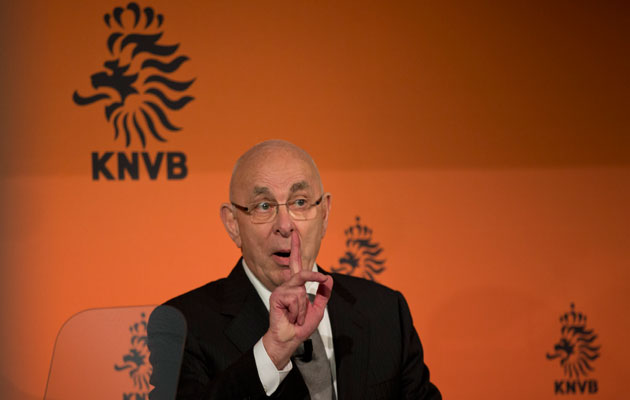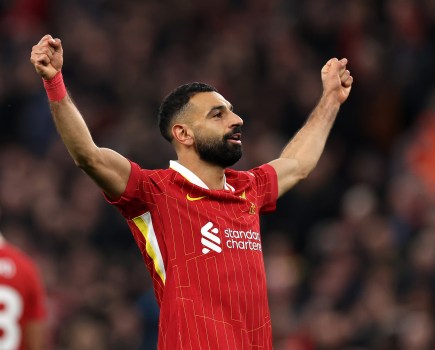Michael Van Praag has withdrawn his candidacy for the FIFA presidency and thrown his support behind Jordan’s Prince Ali bin Al Hussein.
The president of the Dutch federation issued a short note announcing his decision ahead of a later press conference with Prince Ali in Amsterdam.
A statement read: “After thorough deliberation and reflection with different involved parties and stakeholders, Michael Van Praag decided to withdraw his candidacy to become the next FIFA president and to join forces with presidential candidate Prince Ali Al Hussein.”
Van Praag has been forceful in his criticism of reigning FIFA president Sepp Blatter ever since confronting the 79-year-old Swiss during a UEFA conference in Sao Paulo on the eve of last year’s World Cup finals.
Then Van Praag told him: “I said to him that I liked him very much so this was nothing personal but the reputation FIFA had built in the last seven or eight years meant people linked FIFA to corruption, bribery, old boys network things.
“I told him: ‘FIFA has an executive president and having an executive president means that at the end you are responsible and, besides, you don’t make it easy on yourself. Now you say that Qatar was the wrong choice which means you blame your executive committee and yesterday you said something about racism.
“‘So people tend not to take you seriously any more. That is not good for FIFA, not good for the game, not good for the world.”
Van Praag announced his FIFA candidacy only three dyas before the nominations deadline in January. He and Portugal’s former World Player Luis Figo were considered to be responding from encouragement from UEFA president Michel Platini who had declined to translate his own criticism of Blatter into candidacy deeds.
Figo remains in the field after denying reports earlier in the week that he was about to stand down.
Blatter, a popular president of the world football federation largely everywhere but in Europe, remains runway favourite to secure a fifth term in office.
He has overseen a remarkable economic transformation over the past decade and many federations around the world have appreciated his development support strategy. They have remained far more relaxed about the ISL and World Cup bid scandals than critics within the European FAs and the western media.
He is even likely to win in the first round of voting in which his opponents would need to secure one third (69) of the 209 votes available at FIFA’s annual congress in Zurich next Thursday.
Van Praag had said that, if elected, he intended to be only a single-term, transitional president pending new candidates coming forward in 2019. He had taken his message to this year’s congresses of the regional confederation and was disappointed – to say the least – that none of Blatter’s had been allowed to speak, except at the UEFA European conference.
By pulling out ahead of the election he has now lost the opportunity, guaranteed under the election rules, of 15 minutes to address FIFA Congress ahead of the vote. That will please Blatter since Van Praag’s address would have been the most uncomfortably critical of his personal style of leadership.
The withdrawal of Van Praag, largely unknown outside Europe in FIFA political terms, may also indicate that – despite his positive comments – he had found very little support beyond his home continent to contribute to the anti-Blatter effort.







